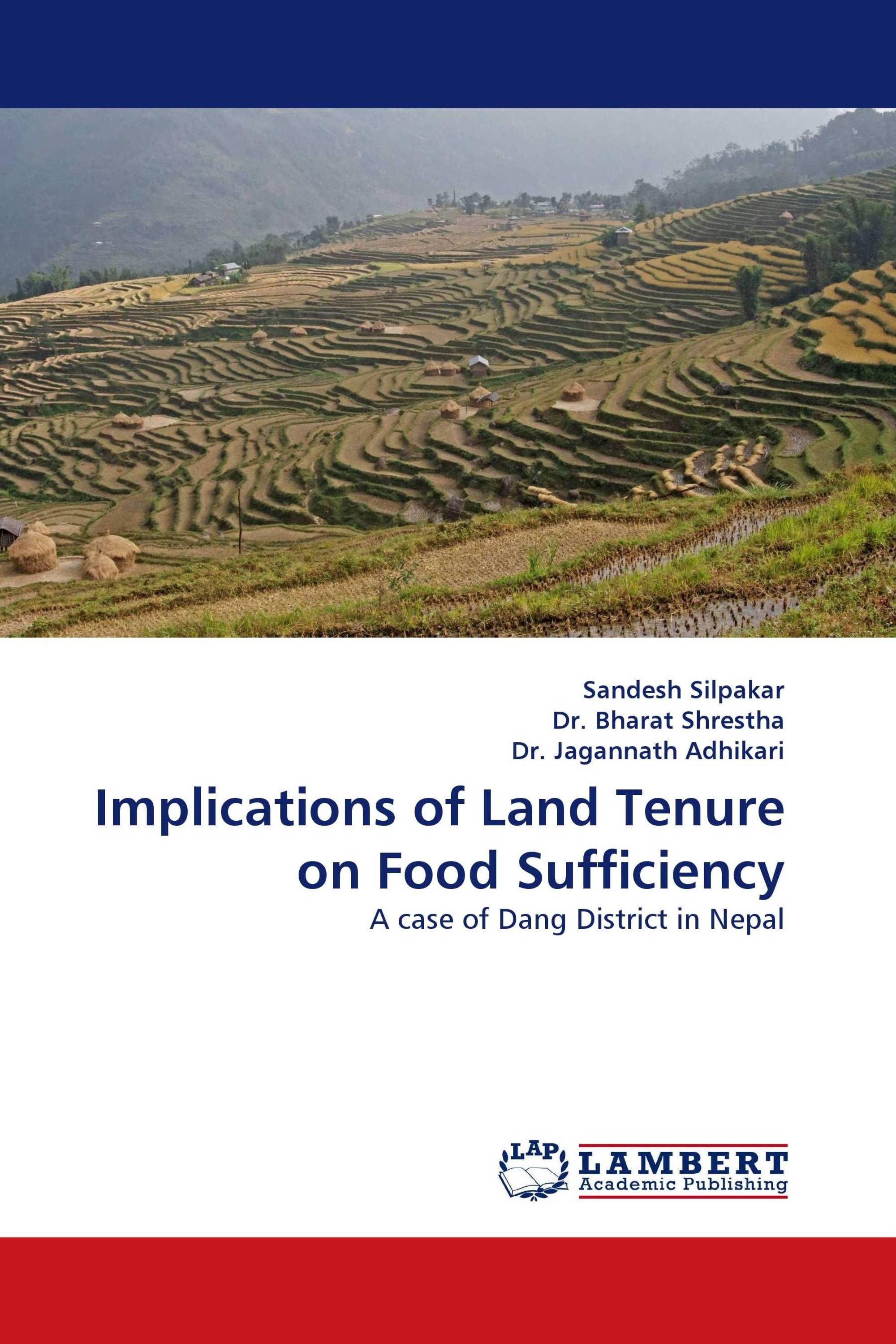Implications of Land Tenure on Food Sufficiency
A case of Dang District in Nepal
LAP Lambert Academic Publishing ( 2011-06-01 )
€ 49,00
Access to land is governed by tenure arrangements affecting the production and productivity of the farm. Gaining access through renting in has both positive and negative implications. In Nepal, sharecropping is widely practiced in Mid Western Region, but there is a gap in academic study as to whether this benefits the farmers and makes them food sufficient. In this context, this study attempts to find out the implications of land tenure concerning agricultural households on food sufficiency through a field study in the sampled area. The major findings are that while secured land tenure very importantly affects the livelihood of land-dependent people, this secured tenure alone is not sufficient for them to attain food sufficiency if that land is unproductive. Family size, land size, type of land and type of tenure governs land tenure system in such a way that these were found to have a tremendous impact in household food sufficiency. A more in-depth research in these areas is needed that would contribute to better understanding of the nexus between secured tenure and the household food security.
Book Details: |
|
|
ISBN-13: |
978-3-8383-8573-0 |
|
ISBN-10: |
383838573X |
|
EAN: |
9783838385730 |
|
Book language: |
English |
|
By (author) : |
Sandesh Silpakar |
|
Number of pages: |
108 |
|
Published on: |
2011-06-01 |
|
Category: |
Social structural research |




